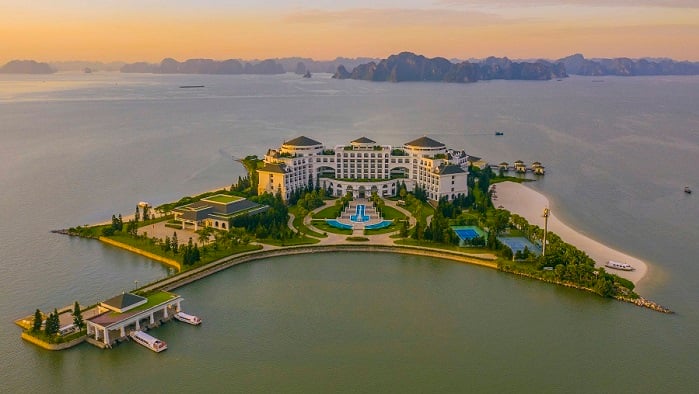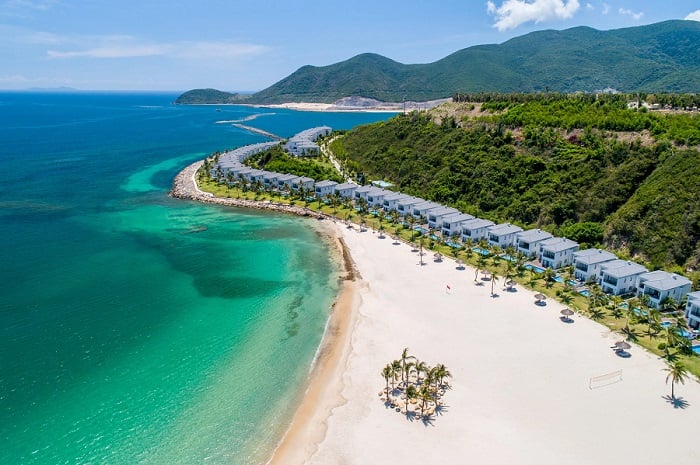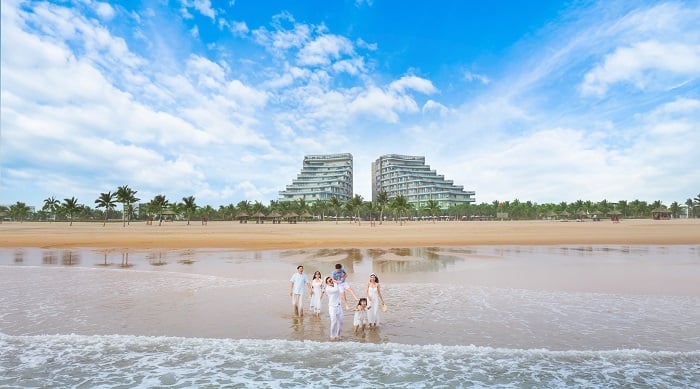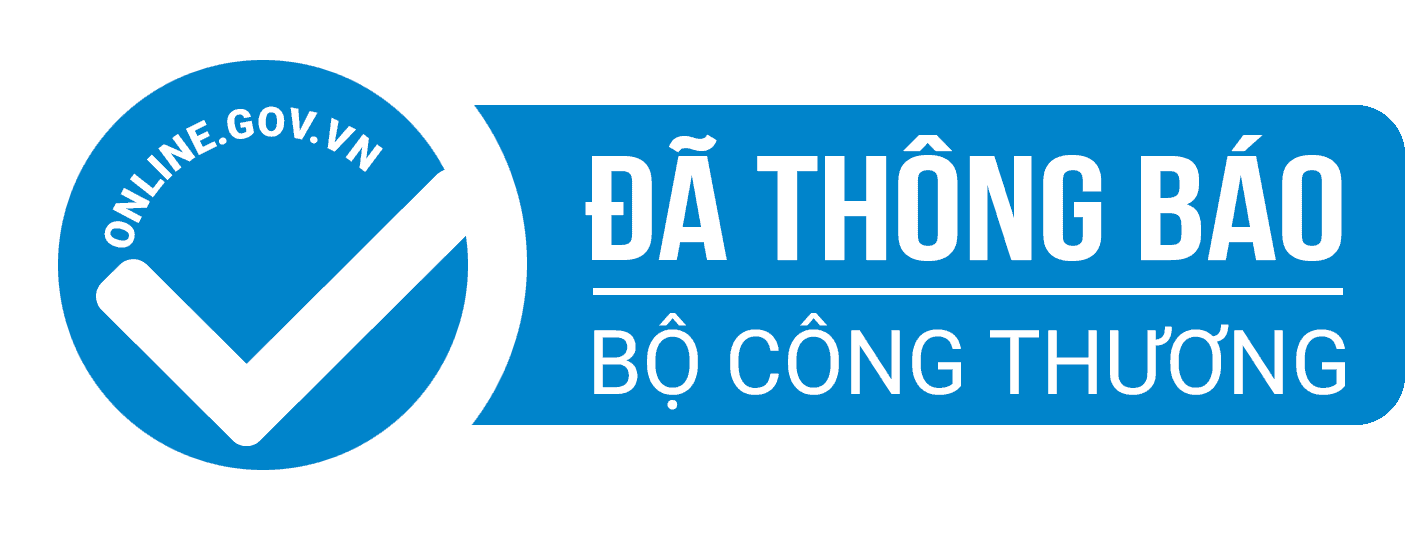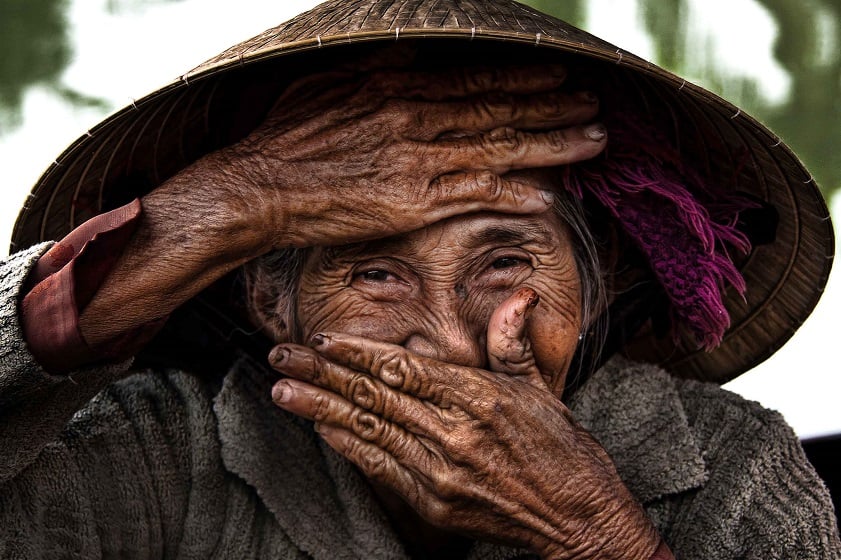
Vietnamese last names, an integral part of Vietnamese identity and heritage, encompass a fascinating tapestry of history, traditions, and cultural nuances. These names often derive their significance from various factors, including geographic locations, ancestral occupations, royal connections, and even poetic or philosophical elements. They hold immense importance for Vietnamese people, serving as a unique link to their ancestors and the vibrant history of their nation.
1. There are over 1000 last names in Vietnam
According to Assoc. Prof. Dr. Le Trung Hoa, author of the book "Họ và tên người Việt Nam" (Vietnamese Names) published by the Social Sciences Publishing House in 1992, a total of 769 Vietnamese surnames were recorded, out of which 164 were attributed to the Kinh people. In the third and latest edition of the book (early 2005), a total of 1,020 Vietnamese surnames were documented, and 165 of them were identified as Vietnamese last names of the Kinh people.
Vietnamese surnames have roots in Chinese influence, with names often based on the father's given name or characteristics. The Nguyen Dynasty and French colonization influenced the use and standardization of Vietnamese surnames. "Nguyen" is the most common, followed by names like Tran, Le, and Pham. Modern trends include using both parents' surnames or the mother's surname.
While there are many Vietnamese family names, not all of them are equally common in the country. Here is a list of Vietnamese last names along with their prevalence ratios in the Vietnamese population:
| Vietnamese last name | Prevalence |
| Nguyen | 38.4% |
| Tran | 12.1% |
| Le | 9.5% |
| Pham | 7% |
| Hoang/Huynh | 5.1% |
| Phan | 4.5% |
| Vu/Vo | 3.9% |
| Dang | 2.1% |
| Bui | 2% |
| Do | 1.4% |
| Ho | 1.3% |
| Ngo | 1.3% |
| Duong | 1% |
| Ly | 0.5% |
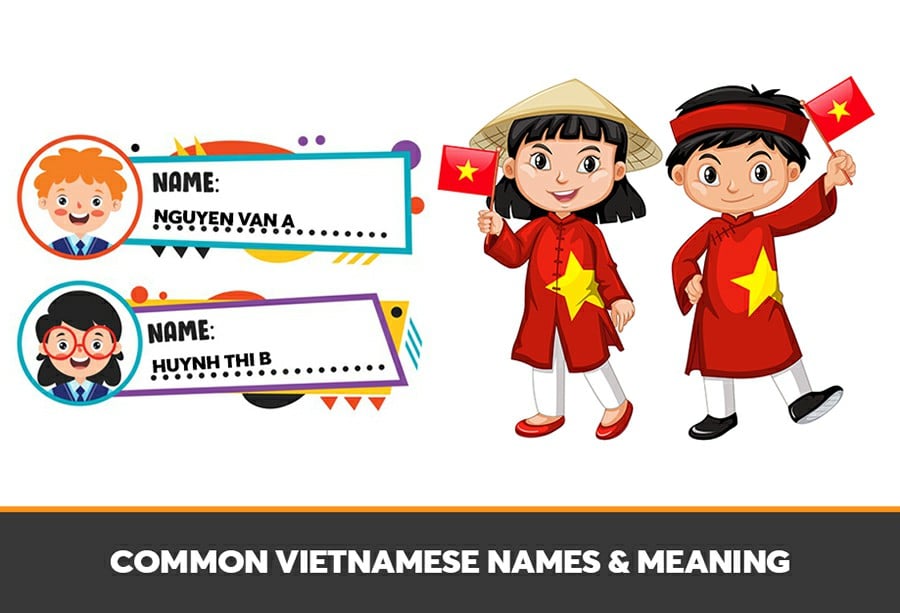
2. “Nguyen” is the most common last name in Vietnam
With 38.4%, the Nguyen surname holds the highest proportion in Vietnam's total population.
There are various explanations for the unusual popularity of the Nguyen surname. According to research conducted by the Department of Literature at the Vietnam National University, Ho Chi Minh City, changing to the Nguyen surname was quite common among descendants of deposed dynasties. The main purpose was to alter their identity and avoid revenge from the previous or subsequent ruling lineages.
Another reason is the tradition of national honors during the Nguyen dynasty. Those who made significant contributions to the court were granted the privilege to bear the royal surname. The Nguyen dynasty was also the last feudal dynasty in Vietnam, resulting in the Nguyen surname dominating over other Vietnamese last names in terms of prevalence.
Approximately 90% of Vietnamese individuals typically bear surnames like Nguyen, Tran, Le, etc. Hence, the remaining 10% are classified as rare Vietnamese family names, notably Nong, Thach, Vi, Khau, and more. Most of them are believed to have origins in China and are more likely found in mountainous regions or Chinese-inhabited areas.
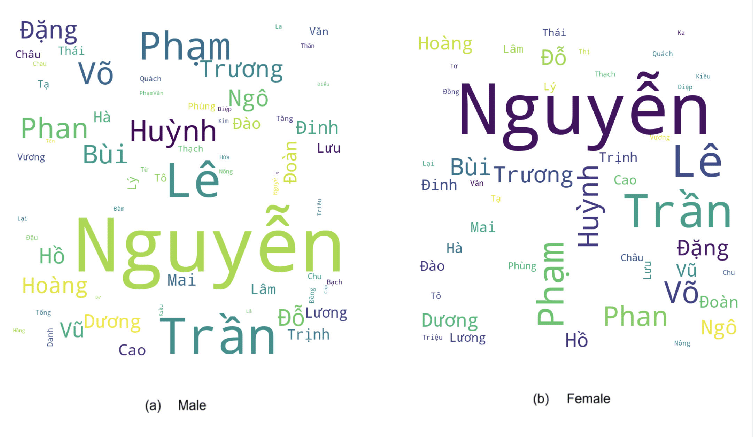
3. "Ma" is the oldest last name in Vietnam
The "Ma" surname is considered the oldest Vietnamese last name, with a lineage history spanning 79 generations to date. People with the Ma surname are often of the Tay ethnic group and primarily reside in the mountainous regions of Phu Tho Province.
Not only is Ma the oldest Vietnamese last name, but the Ma family is also the only lineage still preserving a complete genealogy. This is evidence that the Ma family's founder was born in the 18th generation of the Hung Kings, a significant period in the history of Vietnam. Despite retreating to seclusion after the fame of Ma Khe, the ancestor of the Ma family who was one of the most renowned generals back then, in the 43rd generation, Ma Xuan Truong was recorded in the national history books, rekindling the reputation of the Ma family.
In modern times, some people believe "Ma" is inauspicious (as it sounds like "ghost" in Vietnamese), leading some to voluntarily change their last name from "Ma" to "Mai." However, within the genealogy of the Ma family, the complete history of this Vietnamese last name is still recorded. This stands as a source of pride and honor for many within the Ma family, showcasing a unique connection to the rich history of Vietnam.
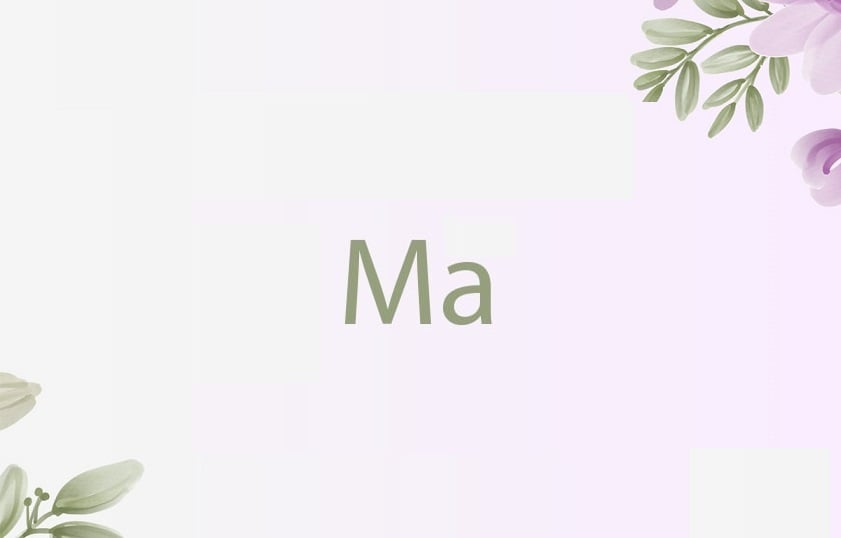
4. Weird naming traditions in Vietnam
For decades, in the commune of Son Dong, Hoai Duc District, Ha Noi, parents have followed the "custom" of using the father's middle name as the family name for girls on their birth certificates. However, for sons, the father's family name is retained as usual. Even though the tradition is unique, it has led to troublesome situations for the girls and women here. Some struggled with or even missed education or career opportunities because the father-daughter unmatching surnames made their identity seem questionable.
Another weird naming tradition is in So Village (now Cong Hoa and Tan Hoa Commune), where the community uses middle names as surnames and surnames as middle names! This means breaking away from the common practice of setting a shared family name for Vietnamese people.
5. Last names related to the names of animals and plants in Vietnam
The Kho Mu (also known as Kmu, Kum mu, Xa Cau, or Tay Hay) are an ethnic minority group among the 54 recognized in Vietnam. In the 1999 book "Dân tộc Khơ Mú ở Việt Nam” (Kho Mu ethnic group in Vietnam), published by the Ethnic Culture Publishing House, Assoc. Prof. Khong Dien pointed out that a common characteristic of Kho Mu family lines is being named after animals, plants, and inanimate objects. For instance, the Rvai family name means tiger; the Tmoong surname represents a squirrel; and the Tva last name signifies a certain type of fern.
The Kho Mu consider these plants and animals as their family line ancestors, and there are local legends linking the origin of their family lines to these plants and animals. Consequently, they strictly avoid hunting and consuming meat while promoting the custom of worshiping these ancestral beings.

>>> Discover some Vietnamese male names and surnames and their meanings!
6. Interesting stories about surnames in Vietnam’s Central Highlands
There are many stories revolving around the traditions of surnames across Vietnam. Each region has unique history and customs when it comes to this indispensable part of the name that reflects a person’s individual identity. Let’s discover some fascinating stories about surnames in Vietnam’s Central Highlands!
In 1954, students from the Central Highlands of Vietnam gathered in the North. When they registered their residency at the Southern Ethnic Cadre School, the police insisted that everyone have a last name. As a result, officials and students were free to choose the last name they preferred and register it accordingly. This is why people may have surnames that did not originate in their hometown. For example, a person who is Hrê may have the last name "Knơng Y Hia," which is of Êđê origin, and a Bahnar person can carry the last name "Siu" (Siu Phích, Siu Ơch...), which is from the J'rai people.
When the government of Ngo Dinh Diem in the Republic of Vietnam created personal identification documents in the South, they noticed that the M'nông people in the Gia Nghia region often didn't have last names. They also observed that the M'nông people commonly attached bird feathers to the brim of their headscarves. As a result, they decided to assign the last name "Điểu" (such as Điểu Kâo, Điểu Glung, Điểu Náp) to the M'nông people as a way of providing them with a distinct last name for official records.
In addition, due to the increasing number of interethnic marriages, the descendants of the Tay Nguyen people have adopted surnames from the lowland regions, such as Nguyen, Tran. As time goes on, parents have gained a better understanding and a deeper appreciation of their family lineage, and so, the younger generations may carry both surnames of the mother and the father (e.g., Vi Hoàng Niê kdăm, Nguyễn Phong Lan Mlô Dun Du…). These are indeed beautiful names that still reflect their origins.

On your Vietnam travels, don't forget to visit Hanoi, Ho Chi Minh City, Phu Quoc, Nha Trang, Hoi An, and Ha Long to fully experience the amazing beauty of this country. A memorable vacation is guaranteed at every destination, each with its own special fusion of culture, history, and natural beauty.
Another smart move is to get a room at one of Vinpearl's resorts or hotels, which are conveniently located in Vietnam’s major cities. Vinpearl provides first-rate lodging in addition to a wide choice of opulent amenities, including spas, gyms, childcare services, restaurants, and more. You can also unwind with Vinpearl at the entertainment heaven VinWonders, where you can take in a range of exciting activities and fantastic shows.

>>> Book rooms in Vinpearl Phu Quoc, Vinpearl Nha Trang, Vinpearl Resort & Golf Nam Hoi An, Vinpearl Resort & Spa Ha Long and enjoy the top-notch amenities!
Vietnamese last names often carry their own unique stories, origins, and traditions, reflecting the rich tapestry of Vietnam's diverse ethnic and historical background. The practice of using Vietnamese family names has been deeply ingrained in Vietnamese customs for centuries, contributing to a sense of identity and connection among the Vietnamese people.


